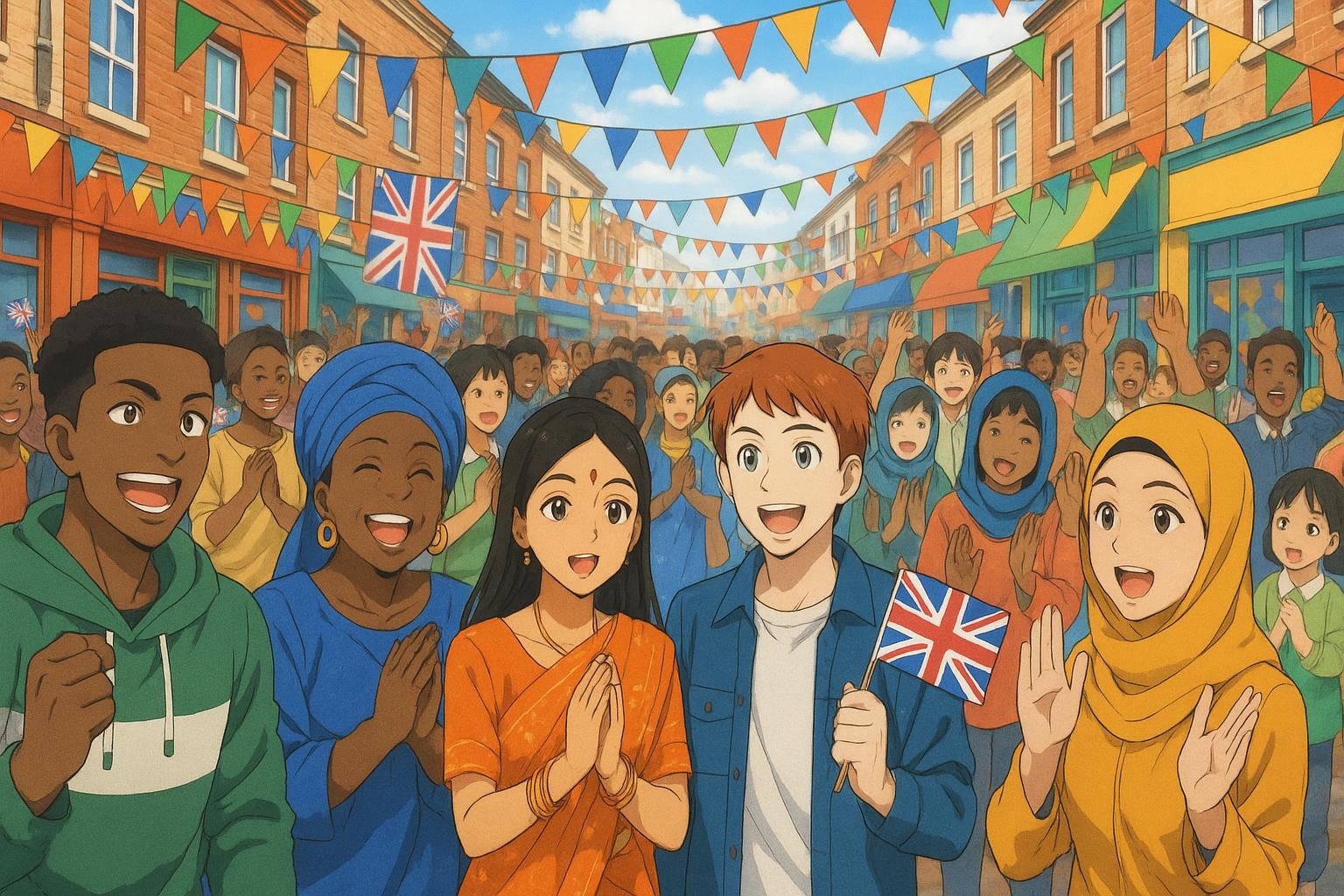The recent speech by Sir Keir Starmer, in which he warned against the UK becoming an "island of strangers," has ignited heated debate about immigration and national identity. This rhetoric, echoing sentiments historically associated with far-right politics, raises questions about the evolution of community and belonging in a modern, multicultural Britain.
Ian Lynam's personal narrative poignantly contrasts the experiences of immigrants in the UK, portraying a family story rooted in resilience and integration. Lynam's father-in-law, who escaped China as a refugee in 1979, has lived in the UK for nearly half a century while preserving his cultural heritage. The family's journey from a council house in Thamesmead to owning a successful food business illustrates how immigration enriches the social fabric. Lynam notes that his children identify with various cultural backgrounds, reflecting a fluid and evolving sense of identity—not a static "island" but a diverse society where traditions intertwine. His perspective serves as a counterpoint to the rhetoric of division that Starmer espoused.
Critics of Starmer's speech argue that framing immigration as a threat to community cohesiveness overlooks the essential contributions that immigrants make to British society. Dame Stella Manzie, in her response, highlights the reliance of public services, particularly in social care, on skilled foreign workers. She advocates for better investment in these sectors, suggesting that rather than restricting immigration, attention should focus on improving wages and conditions for all care workers, regardless of nationality. This reflects an underlying tension between the political narrative of controlling immigration and the practical realities of labour shortages in essential services.
Tony Cha's reflections following a local VE Day street party further illustrate the transformative power of community connections, especially in the context of immigration. His and his wife’s experience of being warmly welcomed by neighbours resonates with a broader truth: the notion that immigration inherently fosters community ties rather than fraying them. Such experiences challenge Starmer's implications that newcomers threaten Britishness, instead demonstrating that shared experiences can bridge perceived divides.
From a socio-political standpoint, the implications of Starmer's statement and the policies he proposes are considerable. Historically, Labour's attempts to address immigration have often resulted in electoral backlash, a lesson reminded by reports from various sources warning against repeating past mistakes that alienated voters. As Starmer aims to curb net migration by imposing stricter immigration controls, there are concerns about the economic consequences these policies may incur, particularly in sectors reliant on immigrant labour. Critics warn that reducing the availability of foreign workers could exacerbate existing labour shortages and hinder economic growth.
Additionally, anthropological insights suggest that while human communities thrive on the familiarity of close relationships, modern urban living naturally dilutes these connections, making many neighbours “strangers.” Rudiger Pittrof argues that rather than discouraging immigration, efforts should focus on fostering genuine connections within communities. Strengthening local events and communal spaces could mitigate feelings of alienation, inspiring a more inclusive notion of citizenship that embraces diversity.
Ultimately, the debate surrounding Starmer's immigration speech underscores a broader conversation about identity, belonging, and the future of community in the UK. Immigration enriches the nation, as evidenced by many personal stories like Lynam’s, which depict a rich tapestry of identities interwoven into the British cultural landscape. As the country grapples with these narratives, the need for unity in diversity becomes increasingly paramount, demonstrating that the idea of Britain is far from being an "island of strangers" but rather a dynamic and inclusive society continually shaped by its people.
Reference Map
- Paragraphs 1, 2, 3, 4, 5, 6
- Paragraph 2
- Paragraph 4
- Paragraph 4
- Paragraph 4
- Paragraph 5
- Paragraph 5
Source: Noah Wire Services
